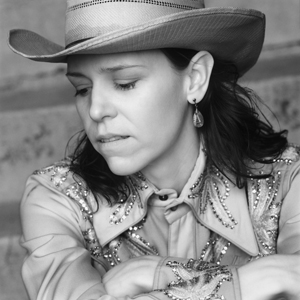Paste: It would be an understatement to say that you pioneered this [new Americana] movement. You’ve been making this music for 20 years and now… this is what’s popular. This isn’t weird.
Gillian Welch: I’m no longer a maritian. Now I’m part of a scene, which is a nice change.
Paste: So how have you witnessed the genre evolve over the years?
Welch: You know, the coolest thing… I feel like this scene has grown out of a lot of the best aspects of the old time music. And a lot of the stuff that drew my partner and I to it in the first place… there was something about a certain kind of folk music that was almost too soft for us. What I’ll call the “pretty folk.” And at the time when we started, that’s what folk meant. Not to put anybody down, but folk was in a very different place in the late ‘80s, early ‘90s, and I didn’t identify very much with folk. Because it was very pretty, very clean in its way. So I always gravitated toward… old time and bluegrass music, and mountain music because the first time I heard the Stanley Brothers, I immediately understood its relationship to the Velvet Underground, and all this other punk stuff that I was listening to. And I think that’s what this entire scene understands and loves, is there was nothing in its way “softer” about this music. It’s sometimes quieter, but it’s not softer. So all the [laughs] angst, and all of the frustration, and all of the strangeness and outsideness that I felt, and that any person growing up in this age might feel, I was able to connect with this music. Also, it’s worth saying… the darkness and the tragedy of the stories that are so commonplace in this type of music that Dave [Rawlings] and I’s music sprung from. I remember feeling really liberated early on, like, “oh there’s nothing I can’t talk about. I wanna talk about morphine addiction? Fine. I wanna talk about rape? Fine. I wanna talk about suicide? Fine. It all comes out of this tradition. I felt total permission to vent anything I wanted to through this tradition… I’m pretty much a shy girl, and didn’t want to talk about what was going on with me, ever, but through the music it was all okay. That’s like everybody. That’s like every artist. There’s a reason why you express yourself through art, because there’s some way which you can’t do it.







